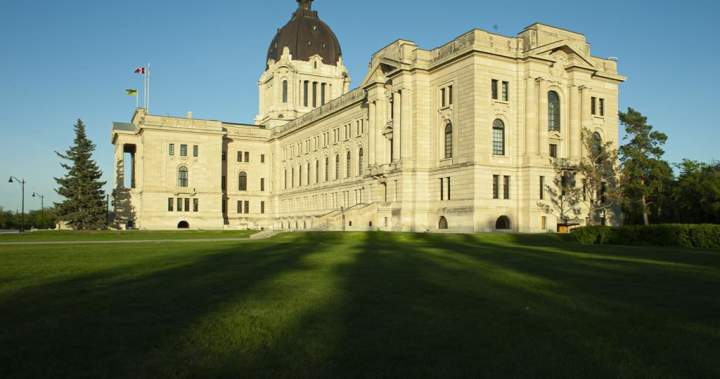The Saskatchewan government’s financial trajectory has taken an unexpected turn as Finance Minister Donna Harpauer revealed a projected $349 million deficit for 2024-25 on Wednesday, a stark contrast to the $250 million surplus forecasted just five months ago in the mid-year update.
Standing before reporters in Regina, Harpauer attributed the financial reversal primarily to increased spending demands across multiple sectors, including healthcare, education, and social services. “The fiscal realities we face today require difficult but necessary decisions to maintain essential services while addressing growing operational costs,” she explained while presenting the $20.6 billion spending plan.
This budget marks a significant $1.3 billion increase in expenditures compared to last year, with particular emphasis on addressing the province’s healthcare challenges. The Ministry of Health received the lion’s share of funding at $7.6 billion, representing a $437 million increase year-over-year as the province attempts to reduce surgical wait times and address staffing shortages that have plagued rural facilities.
Revenue projections have also been adjusted downward, with resource revenues expected to decrease by $736 million compared to the previous year. Potash royalties alone are projected to fall by 38%, reflecting global market conditions and price volatility in the agricultural fertilizer sector.
Opposition leader Carla Beck criticized the deficit as evidence of financial mismanagement. “For years, this government has claimed fiscal prudence while systematically underfunding critical services. Now, Saskatchewan residents are facing the consequences of these short-sighted policies,” she stated during a press conference following the budget announcement.
The provincial debt is now projected to reach $27.6 billion by March 2025, raising concerns about Saskatchewan’s long-term fiscal sustainability. Economists note this represents a 5.8% increase from the previous year, though the province maintains its debt-to-GDP ratio remains among the lowest in Canada.
The budget includes modest relief measures for residents, including a one-time $500 affordability tax credit for adults earning under $100,000 annually and an increase to the Saskatchewan Low-Income Tax Credit. However, critics argue these measures fall short of addressing the rising cost of living that continues to squeeze household budgets across the province.
Business leaders offered mixed reactions. Saskatchewan Chamber of Commerce CEO Prabha Mitchell acknowledged the challenging economic environment but expressed concern about the deficit’s implications. “While we appreciate investments in infrastructure and workforce development, the business community needs predictability. This sudden shift from projected surplus to significant deficit creates uncertainty in the market.”
The education sector received a $180 million funding boost, though school boards indicate this barely covers inflationary pressures and enrollment growth. Similarly, municipalities expressed disappointment that revenue sharing remained largely unchanged despite growing infrastructure needs in communities across the province.
As Saskatchewan navigates these fiscal challenges, questions remain about how the province will balance its books in coming years without reducing services or increasing taxes. With provincial elections on the horizon in 2024, the budget sets the stage for an intensifying debate about Saskatchewan’s priorities and economic future. Will voters prioritize fiscal prudence or demand greater investments in public services, even at the cost of higher deficits?










